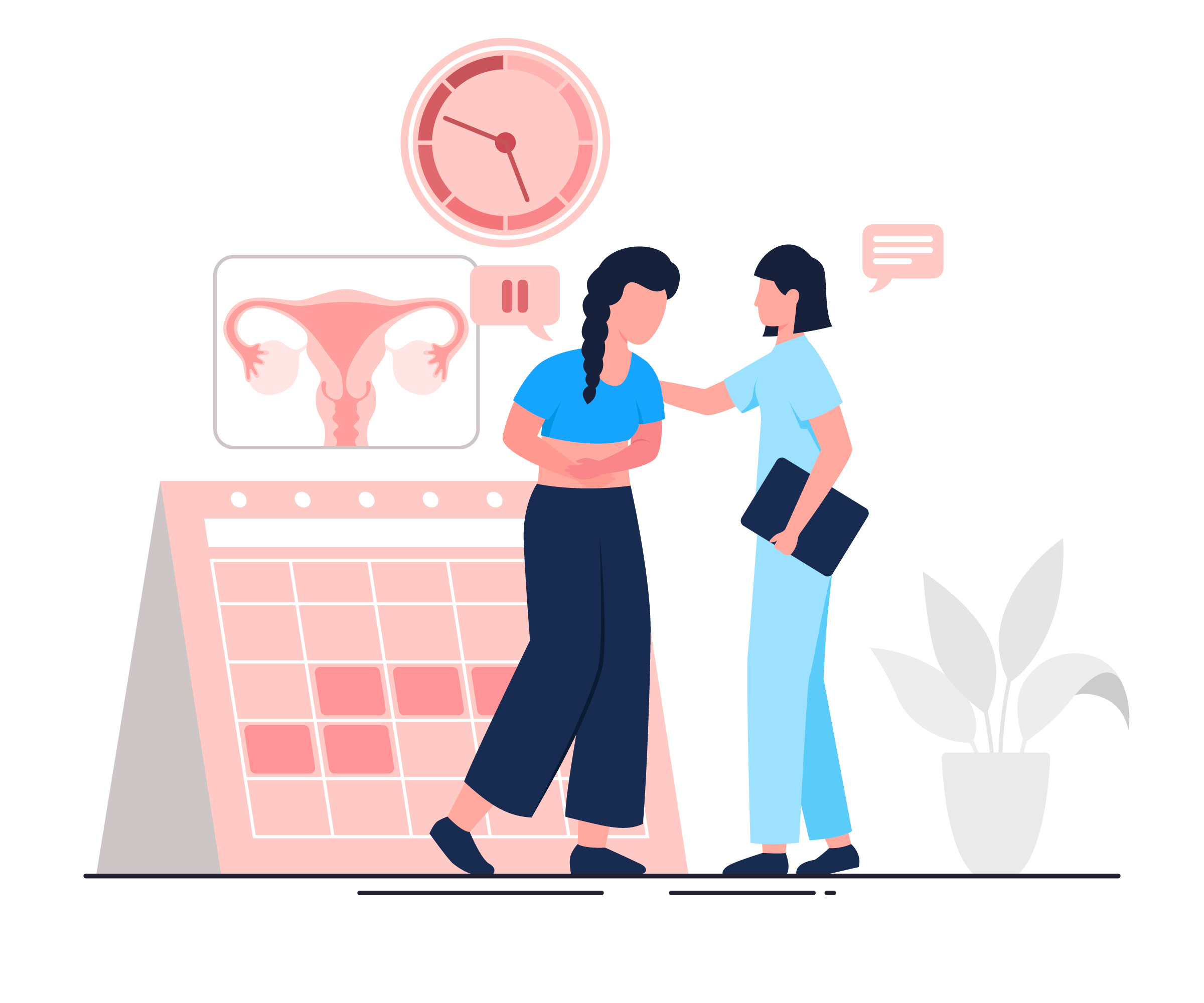
What is a hormone imbalance?
Hormones are tiny molecules that travel throughout the body, coordinating certain functions and carrying messages through your blood to your organs, muscles, skin, and tissues. Hormonal balance is really important for lots of different things, from how your body uses energy to how it grows, how well you sleep, how you feel, how stressed you are, and how your sex life and reproductive functions work.
In women, a key hormone balance occurs between oestrogen and progesterone. This means that estrogen levels rise during the first half of your cycle, while progesterone levels rise during the second half. If your hormones aren't in balance, it means that either estrogen or progesterone isn't at the right level at the right time during your cycle.
What causes a hormonal imbalance?
We all experience hormonal changes at certain points in our lives. But if our endocrine glands don’t function properly for different reasons, we get hormonal imbalances.
For women, these periods of hormonal imbalance occur naturally throughout their lifetime, especially during puberty, pregnancy, peri and pre-menopause, and menopause. There are several factors that may impact your hormonal balance, including:
- Diabetes
- Thyroid issues (hypothyroidism, hyperthyroidism)
- Anorexia
- Being overweight or underweight
- Birth control
- Pituitary tumours
- Cancers of endocrine glands
- Poor nutrition
- Phytoestrogens found in soy when eaten regularly
- Exposure to certain toxins and chemicals
- Polycystic ovary syndrome (PCOS)
- Ovarian cancer
- Primary ovarian failure (POF)
- Extreme stress and burnout
How do I figure out if I have hormonal imbalance?
The tricky part is that hormonal imbalance is often a silent enemy, with mild symptoms that we may not notice or symptoms that mimic other conditions. Some common symptoms of hormonal imbalance include:
- Losing or gaining weight
- Constipation or diarrhoea
- Bloating
- Fatigue
- Irritability, anxiety, or depression
- Sweating
- Irregular periods
- Acne
- Lack of libido
- Brain fog
- Sore breasts
- Hair loss
If you're experiencing any of the symptoms mentioned above, it's a good idea to speak to your doctor. Each one on its own might not be cause for concern, but together they could be a sign of something more serious.
How is a hormonal imbalance diagnosed?
The only way to diagnose a hormonal imbalance is to have your hormone levels tested. Typically, a woman's baseline tests are taken around day 3 of her menstrual cycle. These tests usually measure:
- Follicle stimulating hormone (FSH)
- Estradiol
- Progesterone
- Luteinizing hormone (LH)
- Testosterone
- Dehydroepiandrosterone sulphate (DHEAs)
- Anti-mullerian hormone (AMH)
- Prolactin
Your doctor might want to run a progesterone test to make sure you ovulated. Progesterone tests can also give you an idea of how healthy your luteal phase is, your chances of getting pregnant, and the risk of having an imbalance of estrogen and progesterone, which can often be caused by too much estrogen. This test should be done seven days after ovulation, when your progesterone levels should be high.
How do I treat hormonal imbalance?
Once you have your test results and know what's wrong with you (your diagnosis), you'll be able to decide on the best way to proceed. If you're suffering from minor imbalances, such as a shorter luteal phase (low progesterone) or slight estrogen dominance, you may be able to manage it yourself with over-the-counter treatments. In some cases, to get back to full health you may just need to:
It's a good idea to exercise regularly, eat a healthy diet with less sugar and processed foods, and more protein and healthy fats, manage stress, improve your sleeping patterns, and so on.
If your problems are more serious and you have been diagnosed with PCOS, anovulation, or thyroid issues, you will most likely need medical intervention under the supervision of a specialist doctor.
If you think something might be wrong with your hormones and you think they might be out of balance, it’s a good idea to talk to your doctor. The sooner you can identify and treat the issue, the sooner you can get back to living your best life!
